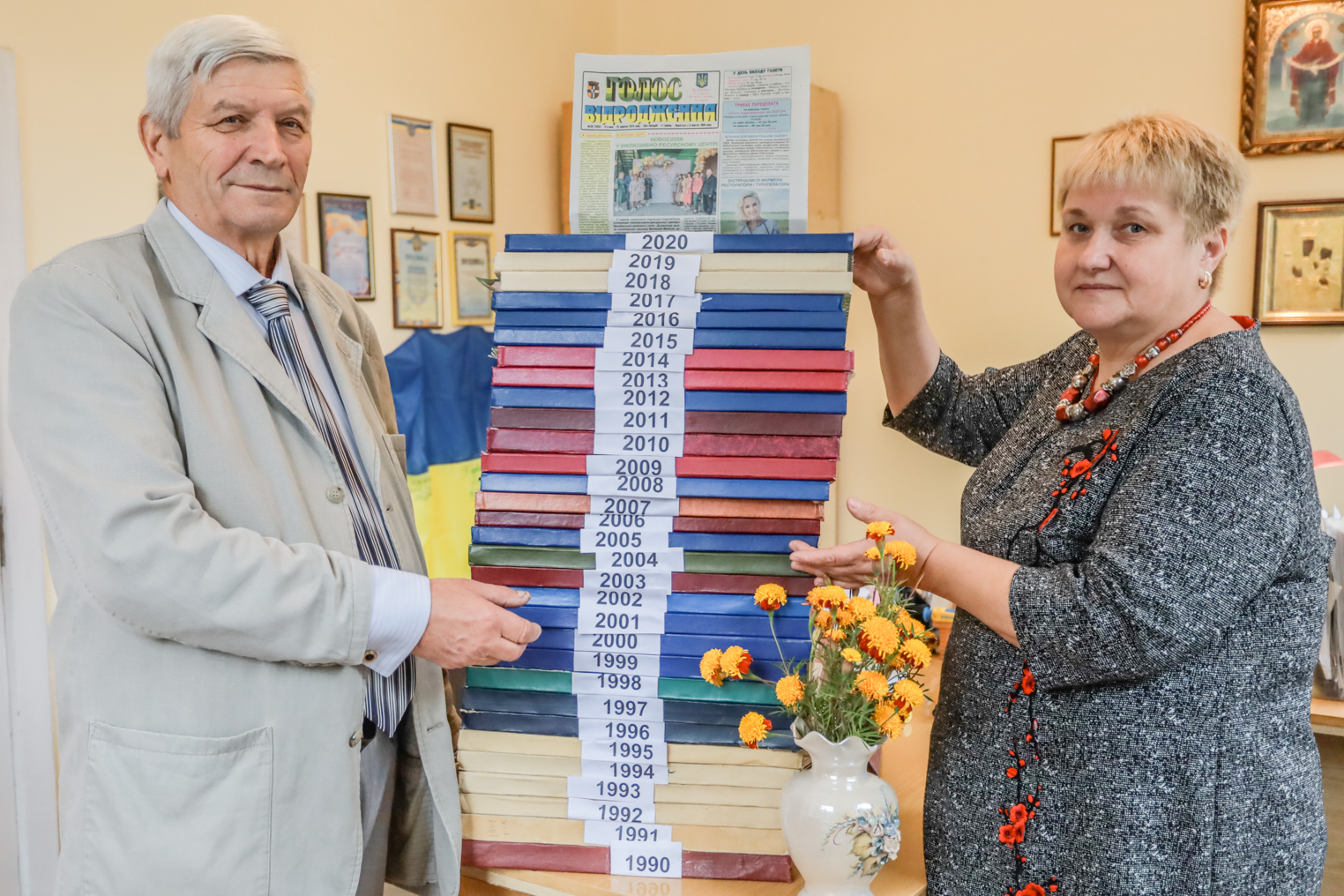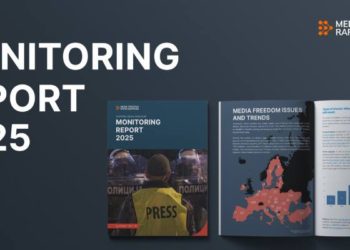Holos Vidrodzhennia is a socio-political Ukrainian-language district newspaper published in the town of Brody, Lviv Region. The newspaper tells about events in Ukraine, the region and the district. In the first months of the russian-Ukrainian war, despite financial difficulties, the publication continued to independently inform its readers. Journalist and editor Nadiya Zabokrytska talked about how the newspaper is published today and the main problems faced by the newsroom since the start of the full-scale war.
What are the main challenges local media face in today’s conditions?
It is no secret that local media do not live but survive. The problems did not start today. The not-so-successful reformation of the press “undercut” district newspapers, the coronavirus added problems, and now, the largest problem is large-scale russian aggression. In addition, the Ukrposhta state-run postal service, which neglects all partnership agreements, “adds fuel” to the fire-burning print media. Why am I talking about reforming the press? After all, it was assumed that at the initial stage, the state would financially support the denationalized mass media. This did not happen. In addition, state authorities and local self-government bodies should enter into agreements with newspapers to cover their activities. But, let’s be honest, fulfill this requirement of the law of units. With the beginning of the quarantine, the amount of advertising and subscriptions was lost. Unfortunately, it was not possible to return it, as they say, to the original rails.
What problems did you face at the beginning of the full-scale invasion?
The war changed all of us; it also changed newspapers. In the first months of the full-scale invasion, we simply existed. Worked for free. But it is very difficult to publish a newspaper without finances. We still had to pay for paper, printing (which was getting more expensive), for energy carriers. Resolution 590, in the conditions of martial law, limited settlements with newsrooms for services rendered, subscriptions to printed editions by budgetary institutions, and so on. But somehow, we adapted and published the newspaper, although we were on the verge of shutting down. People really need local information; we saw how much the villages were waiting for our newspaper and we gave it.

The particular problem is the constant increase in Ukrposhta’s tariffs. In addition, the reduction of mail carriers and the replacement of stationary branches with mobile ones leads to untimely and poor-quality delivery of publications. Subscribers complain that the newspaper is not delivered on time or is delivered and left either in a store, or with one of the residents on the street, or in a room that is often provided to mail carriers, for example, by elders. And it is not always possible to subscribe to a newspaper. The postal service’s delivery car comes to some settlements twice a week and to some others – once, it stays in some certain place for only 20-30 minutes, not letting everyone willing get there. But the most important thing is not connected to timely delivery. The reader does not want to pay for “wastepaper.” However, we pay Ukrposhta quite a lot for delivery. It is worth noting that circulations are decreasing catastrophically.
What is the topic of your newspaper today?
Our newspaper tells about events in Ukraine, region, and district. Nevertheless, the peculiarity of the local press is to tell not about something distant but about what is happening in the neighboring village, on the neighboring street, how the community lives, and how the local government works – all this is close and interesting. We write about everything that is on the agenda today – about the work of educators and medicine, culture, history, about compatriots who defend Ukraine on the battlefield. The most difficult thing is when you have to write about the death of military personnel and communicate with their relatives in order to tell the general public about the Hero.
 Who finances your print media?
Who finances your print media?
We work practically on a volunteer basis, and we receive a minimum wage, but we do everything possible to save the newspaper. Now, it is very difficult to work. But we can’t help keeping the newspaper published because we realize that we are very important in the informational component both at the local level and in the state. We hope that the state will finally understand that the local print press will not survive without targeted support. Former District newspapers will simply disappear, and it will not be possible to restore them. And there is a need for such newspapers!
Olena Shumyk

 THE NATIONAL UNION OF
JOURNALISTS OF UKRAINE
THE NATIONAL UNION OF
JOURNALISTS OF UKRAINE
















Discussion about this post